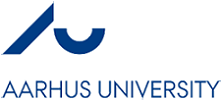Electrical Engineering

Winter intake start date
2026-02-01
Winter intake deadline
2024-10-15
Aarhus University’s (AU) Master of Science in Electrical Engineering centres on the research-based development of electrical and electronic systems, which plays a vital role in society. This two-year programme equips students with specialised theory, state-of-the-art research, and application of electrical technology. Moreover, students can choose to dive into a wide array of fields, ranging from photonics to healthcare, robotics, and space technology.
There are vast career options within both industry and academia with an MSc in Electrical Engineering.
Flexible study programme
The MSc programme consists of 20 ECTS mandatory courses, 40 ECTS specialisation courses, 30 ECTS elective courses for which there is the possibility to select courses from different departments, and a final thesis project of 30 ECTS.
The 40 ECTS of specialisation courses gives you a unique opportunity to shape your programme according to your areas of interest. Starting from the summer of 2025, you can choose from the following specialisations:
- AI & Computer vision
- Biomedical engineering
- Chip design
- Communications and Networks
- Cyber-Physical Systems
- Cybersecurity (2026)
- Electronics & Photonics
- Renewable Energy Systems
- Robotics and Drone Technology
- Software engineering
The teaching is usually divided into lectures and theoretical and practical exercises in small classes and small groups. Students are expected to have the ability to complete course projects on their own as well as collaborate with their peers on group assignments.
Flat structure
At AU, you are in close and informal contact with lecturers and researchers. The social structure is uniquely flat, questions are always welcome, interaction and discussions are highly encouraged, and you can always catch up for a chat with anyone from our academic staff.
Working with researchers
As a student, you will be able to collaborate closely with leading scientists on pioneering research within electrical engineering. AU is a comprehensive university with many disciplines, and you can collaborate with students and researchers from other faculties and departments. You will also be able to contribute to scientific publications and new breakthroughs. AU is a top-ranking university on world rankings and is among the top 25 universities in the European Union (EU).
Career
Electrical technology affects all parts of our society, from healthcare to energy systems, as artificial intelligence, robotics, and smart systems are becoming increasingly crucial for all sectors. Electrical Engineering graduates find work in a wide range of areas and there are great options for an academic career. The unemployment rate for Electrical Engineering graduates in Denmark is very low. You can also choose to start your own company.
Na studia magisterskie mogą kandydować wszyscy, którzy ukończyli studia licencjackie lub inżynierskie (studia I stopnia), studia magisterskie lub studiują na ostatnim roku studiów I-stopnia. Studia, które planujesz powinny mieć zbliżony profil do tych obecnych lub ukończonych, ponieważ w procesie rekrutacji kluczowa jest ich zgodność programowa.
Wykaz punktów ECTS – osoby, które są jeszcze w trakcie studiów, muszą załączyć wypis punktów ECTS, w którym będzie wykazane, jakie przedmioty były realizowane na studiach oraz ile punktów za nie otrzymano.
Dyplom ukończenia studiów licencjackich lub inżynierskich – jeśli jesteś absolwentem wyższej uczelni, nie potrzebujesz wypisu, wystarczy załączyć dyplom ukończenia studiów wraz z suplementem (w języku angielskim lub oryginał z tłumaczeniem)
Course description - należy przygotować dokument, zbierający cały sylabus ze studiów licencjackich. Takie sylabusy najczęściej są do pobrania na stronie uniwersytetu. Należy je przetłumaczyć na język angielski (można samodzielnie) i złączyć w jeden dokument. Warto też zapytać w dziekanacie uczelni, czy nie dysponują wersją angielską.
Oficjalna skala oceniania Twojej uczelni - możesz dostać taki dokument w dziekanacie Twojej uczelni lub skonstruować samodzielnie. W obu przypadkach dokument powinien zawierać pieczątkę dziekanatu.
Spełnienie wymagań w zakresie języka angielskiego można udokumentować w jeden z następujących sposobów:
IELTS – 6.5
TOEFL – 83 (Aarhus University TOEFL kod - 8935)
Uwaga: wymagania językowe mogą ulec zmianie. Przed wysłaniem aplikacji upewnij się jakie są wymagania językowe na konkretny kierunek bezpośrednio na stronie uczelni.
W przypadku zdawania certyfikatu IELTs upewnij się, czy uczelnia oprócz wymagań oceny końcowej nie ma również wymagań odnośnie ocen cząstkowych.
You can be admitted to the master's programme if the university assesses that your education has a level, scope, and content that corresponds to the academic requirements specified below.
| You can meet the admission requirement with a Bachelor’s degree programme (BSc) or professional Bachelor's degree programme (BEng) if you have the following subject areas: | Number of ECTS |
Mathematics In the following subject areas:
| 20 |
| Bachelor courses in Physics within the topics; classical physics, electrostatics and dynamics, classical optics and basic quantum mechanics | 5 |
Bachelor courses in Electrical Engineering within the topics: digital and analogue electronics. | 30 |
Additionally, bachelor courses in within at least one of the following topics:
| 10 |
| Total | 65 |
